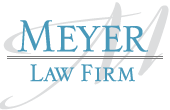 WHAT HAPPENS to your belongings at death solely depends on what kind of plan you have — or do not have.
WHAT HAPPENS to your belongings at death solely depends on what kind of plan you have — or do not have.
Wills and trusts are the foundation of most estate plans. Which one best meets your needs is dependent on many factors including your marital status and family situation, if there are minor children or children with special needs, your financials, and the tax implications of your assets.
Wills
A will legally puts into writing your wishes as to how you want your assets distributed on death. If you do not have a will, the state of Florida will direct how your assets are distributed. Having a will ensures that your wishes are met rather than the state’s directives.
Your will allows you to name the beneficiaries of your estate, when they will receive their shares of the estate and can even specify distributions to individuals who are generations beyond such as your great-grandchildren.
Your will also enables you to name who you want to administer your estate when you die, the person you wish to administer any trusts created under your will, and who you trust to raise your minor children.
Meyer Law Firm will work with you to define your wishes and goals and then design a will you are comfortable with and ensure that the document is in accordance with the law.
Advantages of a will are that retitling of assets is not necessary, creditors only have a limited time to make claims, and you can appoint guardians for minor children.
Although there are advantages to a will there are also disadvantages. A will must go through probate, can become outdated if there are major changes in your life, and only is effective at death and cannot address incapacity. In these cases, a trust may better address concerns.
Trusts
Trusts that would benefit your family can vary in type and complexity depending on your personal and financial situation. For instance, Meyer Law Firm may recommend that you set up a Revocable Living Trust. This document allows you to name yourself as both trustee and beneficiary during your lifetime. The importance of this type of trust is that your family does not have probate expenses since you transfer select assets to the trust before you die. More importantly, this trust provides for your financial care if you are alive but not well.
Learn More About Wills and Trusts
Below are questions our new clients ask most frequently about wills and trusts. Since the legal world has many variables which make it difficult to answer most questions with a brief paragraph, we recommend that you use these answers as informational only and seek legal advice to ensure that your specific case is handled to meet all legal requirements. We’ve also provided links to articles that can help you make informed decisions.
[/toggle]
What can my will do?
A will can:
- Name who receives your property at death.
- Specify when individuals will receive their shares of the estate.
- Provide distributions to individuals who are generations beyond such as great-grandchildren.
- Designate the person you want to administer your estate. This may be an individual or a bank or trust company.
- Include a trust which distributes the income from a portion of your estate for the benefit of family or others. This is often used to care for minors.
- Name a person who will administer any trusts created under your will.
- Allow real estate and other assets to be sold without court proceedings.
- Allow you to make charitable gifts.
- Determine who bears any tax burden.
- Name a trusted person to care for your minor or special needs children (Guardian).
[/toggl
Are there any disadvantages to a will?
Yes. The key disadvantages to a will are:
- Since a will is only effective at death, there is no opportunity to plan for incapacity.
- A will must go through probate, a proceeding that may involve time and expense.
- A will can become outdated if you have major changes in your life such as marriage, birth of a child or a death in the family.
What happens if I die without a will?
If you die without a will, known as dying “intestate”, the state will decide how your assets will be divided. This Florida law is intended to distribute your assets according to how the average person would have designated it in a plan. However, this may not be at all what you really want. Additionally, even if you have informed your loved ones verbally of your intent, they likely will not be able to honor your wishes if not specified in a legal document.
In Florida, if you die without a will your assets (after probate payment of claims, debts, taxes and expenses) will be divided between your spouse and children with the specific distribution depending on your family situation. A few scenarios are below:
You are married without children. Your spouse will receive all of your intestate estate.
You are married with living children. If all of the children are also descendants of your surviving spouse, and your surviving spouse has no other descendants, your spouse will receive all of your intestate estate.
You are married with children and your spouse also has children. If your surviving spouse has children from another marriage, your spouse will receive half of your intestate estate. The balance of your intestate estate will be divided equally among only your lineal children.
You are not married and have no children. Your estate will go to your parents. If your parents have passed, your siblings will receive your intestate estate.
Can a will reduce expenses and taxes?
Yes. A will frequently will reduce expenses. If you do not have a will, the court will appoint a person, known or unknown to you, to manage your estate. In these cases, the cost of probate may be higher and the administration of your estate may be subject to greater court supervision.
A well thought-out estate plan can also incorporate important income tax advantages.
Can I distribute all of my property?
Must I leave money to my spouse and children?
In Florida, you may not disinherit your spouse without a legal marital agreement.
If you get married after your will and do not have a marital agreement, your new spouse may receive the same share of your estate as if you had died without a will.
You can specifically exclude children in your will.
How long will my will last?
I just moved to Florida. Do I need to redo my will?
Is a trust a substitute for a will?
What is a Living Will?
Below is additional information on wills and trusts which you may find helpful:
Do You Have a Will? (The Florida Bar) (PDF)
The Revocable Trust in Florida (The Florida Bar) (PDF)
Ten Questions to Ask An Estate Planning Attorney (PDF)
Common Estate Planning Mistakes (PDF)
AARP Articles
Below are articles from AARP on wills and trusts. For more information visit the AARP website.
A To-Do List for Estate Planning
Get ready for possible changes in 2013.
(John F. Wasik, AARP Bulletin, October 19, 2011)
Where There’s a Will…
There’s a way to contest it. But the cost can be high, and not just in money.
(Nancy Mann Jackson, AARPBulletin, August 17, 2011)
10 Things You Should Know About Writing a Will
Who inherits the good silver is just the beginning.
(Brett Widness, Updated May 2012)
Choose the Right Executor or Trustee
5 tips for a decision that can make or break estate planning.
(G.M. Filisko, April 22, 2011)
4 Costly Estate-Planning Blunders
Think your documents are bullet-proof? Check again to avoid these common mistakes.
(G.M. Filisko, Updated March 2011)
10 Things You Should Know About Living Trusts
Many boomers are choosing a trust over a will, but the price can be steep.
(William J. Lynott, AARP Bulletin, September 15, 2010)
Take Charge of Your Future. Legal Documents You Need Now!
(AARP Education & Outreach, October 2010)
Who Inherits the Cottage by the Lake?
To stop siblings from squabbling, put a plan in writing.
(Darci Smith, AARP Bulletin, June 16, 2010)
